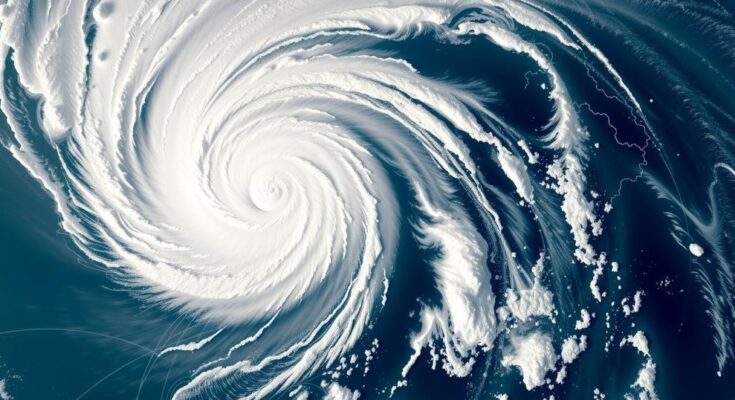Cyclone Chido is advancing towards Comoros, Madagascar, Mayotte, and Mozambique, bringing strong winds and heavy rainfall. Authorities have issued red alerts and are taking precautions, including school closures and evacuations. The cyclone poses serious risks, exacerbated by climate change effects. Residents are urged to stay informed and take safety measures.
A powerful tropical storm, Cyclone Chido, is advancing toward the islands of Comoros, Madagascar, Mayotte, and the African mainland, notably Mozambique. This cyclone is projected to bring severe winds and heavy rainfall, posing a significant threat to the region. In light of the impending storm, Comoros has implemented school closures in anticipation of impacts expected to begin early Saturday.
Mayotte has activated a red alert as declared by the French national weather service. Furthermore, Mozambique has issued a red alert for the northern provinces of Cabo Delgado and Nampula, potentially affecting over 2 million residents. The Mozambique National Meteorological Institute is predicting wind speeds that could reach up to 200 kilometers per hour (124 miles per hour) upon Cyclone Chido’s landfall.
In Madagascar, authorities are also preparing for the cyclone’s impact, sending alerts urging local residents to take precautions. Evacuations are already taking place in the northern region of Diana, expected to experience the cyclone’s most devastating effects. Concurrently, essential supplies, including food and emergency equipment, have been distributed to vulnerable areas since Tuesday.
The French government is actively mobilizing resources to aid Mayotte in mitigating the potential cyclone damages, dispatching emergency personnel and equipment to support rescue and recovery operations. Climate experts emphasize that cyclones in this region are intensifying as a consequence of climate change. Cyclone Chido threatens to incite damaging flooding, landslides, and the spread of waterborne diseases such as cholera, dengue fever, and malaria.
As the cyclone season unfolds, residents are strongly encouraged to remain informed and implement necessary safety measures to protect themselves from this natural disaster.
Tropical storms such as Cyclone Chido emerge from complex weather patterns influenced by ocean temperatures and atmospheric conditions. The intensity and frequency of cyclones in regions like the Indian Ocean have been exacerbated by climate change, resulting in stronger and more destructive storms. This particular cyclone poses a heightened risk to vulnerable nations with limited resources for disaster management, making preparedness and early response critical.
In conclusion, Cyclone Chido presents imminent threats to the islands of Comoros, Madagascar, Mayotte, and northern Mozambique, evidenced by severe wind forecasts and extensive evacuations. The response from local authorities reflects a proactive approach in minimizing risks to residents, underscoring the increased severity of cyclones linked to climate change. It remains essential for the affected populations to heed warnings and remain vigilant as this natural disaster approaches.
Original Source: www.inkl.com




